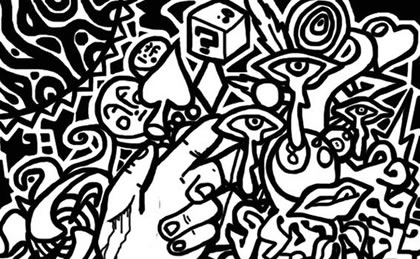
[Illustration by M H Evans]
William of Occam has a lot to answer for. Let me explain. Psychology bloggers are getting excited over recent research in biological psychiatry that integrates the environment into aetiological models of mental illness. While these developments are to be welcomed, they do come relatively late in the day, bearing in mind we’ve already got evidence for myriad environmental causes including urbanicity, child abuse, social class and so on.
Continue reading “Environmental Effects in Mental Illness Models”
















